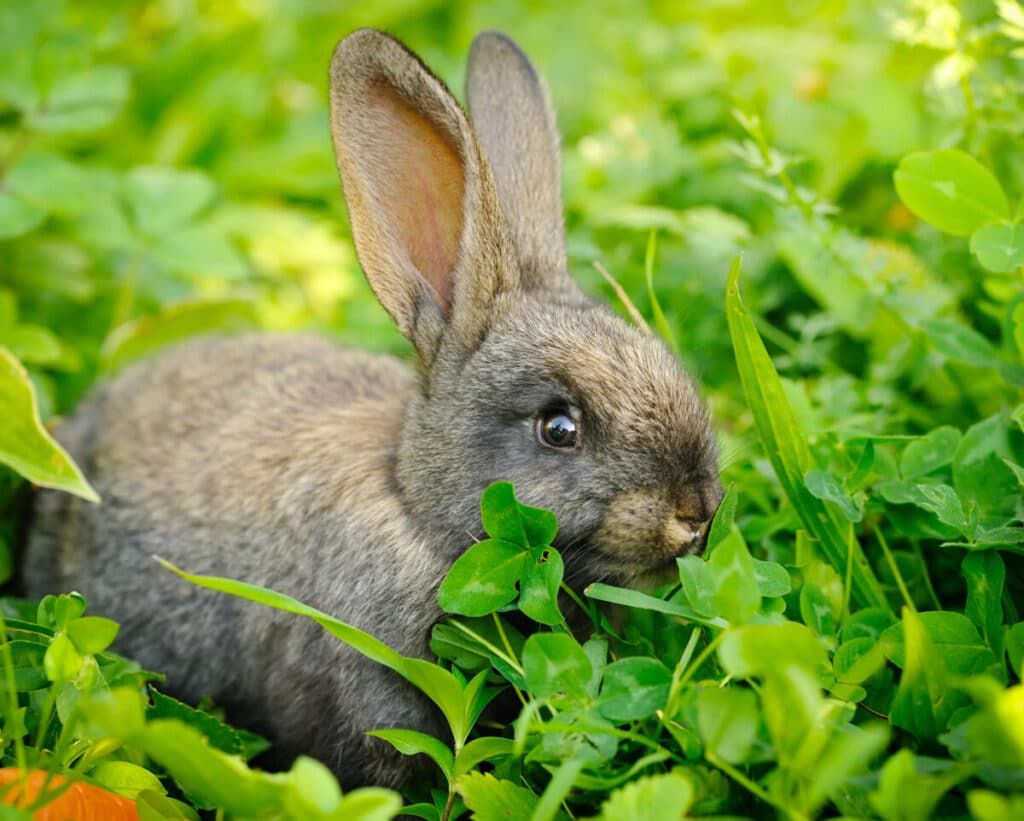
Due to the fact that rabbits are prey creatures, they are very sensitive to many different potential dangers. While this serves them well in the wild and helps them to stay alive, it makes it so they can be difficult pets that need very specific living conditions in order to survive and thrive.
No matter how hard you try to care for your rabbit and accommodate all its needs, they might still die suddenly with no explanation. This can be a very tragic occurrence, where owners are left wondering what they did wrong and what they could’ve done better. Sometimes there’s nothing they could’ve done, and it was just an unexplainable, unfortunate event.
However, there can often be an explanation that can help explain what happened. Here are 8 common sudden deaths that can happen, and how to notice them or prevent them.
1. Fright
Surprisingly, rabbits can actually die from fright. This is why it’s highly recommended to not own a rabbit if you have children under the age of 12, as screaming or rough-housing can cause a rabbit to panic, feel frantic, and even suffer a heart attack from fear. Even if you don’t have children, be mindful of other loud sounds (e.g. gunshots, music, shouting, fireworks, traffic, etc.) or large pets or animals that might set them off.
Take into consideration that a rabbit’s reaction to fright doesn’t have to be instant. The rabbit might not die for a few days after the initial event causing them to feel such high levels of fear. And, while this is something possible to help explain a rabbit’s sudden death, it’s not as common as the other causes below. This cause of death all just depends on the rabbit and their level of tolerable sensitivity.
2. GI Stasis
GI Stasis is a common cause of sudden death in both adult rabbits and even baby rabbits. It happens when a rabbit’s digestion builds up and slows down, making bacteria pile up in the stomach and leading the rabbit to feel bloated and sick. This in turn will make them not want to eat or drink, slowly starving the rabbit to death. It’s important then to constantly monitor the rabbit’s eating and drinking habits to see if anything changes.

3. Flystrike
This is another common issue that causes your rabbit to feel a lot of pain and can even lead to death. Flystrike is when flies lay eggs in your rabbit’s fur, causing maggots to eat at your rabbit. You can particularly see these maggots gather around your rabbit’s rear, which can be extremely uncomfortable for your rabbit and even make them lethargic, starved, and smell.
To prevent this, it’s important to check your rabbit’s fur every day for any injuries or maggots. You also want to make sure that the rabbit’s enclosure has fresh, dry bedding and that there are no maggots hiding in there.
If you do find maggots on your rabbit, then you need to take your pet to the vet immediately. The sooner you can get your rabbit treated, the better likelihood your rabbit has of surviving. Flystrike can cause your rabbit to die within hours, so you’ll want to act fast before it’s too late.
4. Temperature (Heatstroke or Hypothermia)
While wild rabbits can survive very cold temperatures, it is very difficult for domestic rabbits to handle any temperature that is too cold or too hot for them. It’s especially hard for baby rabbits, wild or domestic, to survive harsh conditions since they are born without fur.
The ideal temperature for a rabbit is around 70 degrees Fahrenheit (anything above 80 degrees Fahrenheit will cause heatstroke for your rabbit).
5. Rabbit Hemorrhagic Disease Virus (RHDV)
This dangerous virus has been sweeping the globe, taking out both wild rabbits and domestic rabbits alike. It is both highly deadly and highly contagious, with not a lot of time to heal your rabbit once they show symptoms.
That’s part of the problem though as well—one of the most evident symptoms of RHDV is sudden death. If your perfectly healthy rabbit drops dead unexpectedly, you might want to check them for RHDV. The sooner you can check for RHDV, the less likely your rabbit can infect other rabbits.
In fact, in 2020 there was a variant of RHDV detected, which they refer to as RHDV2, which is far more deadly than its predecessor. This variant is what reached North America most recently, causing it to be a serious issue as the virus can spread through clothing, products necessary for your rabbit’s food and enclosure, and can even spread through a dead rabbit’s body.
Luckily though, there is hope. As of January 2022, there’s now a vaccine available to all domestic rabbits. You can learn more by going to rabbit.gov’s faq about this Medgene’s Lab vaccine and why you should consider giving it to your pet rabbit.
6. Unhealthy Diet
Just like everything else in a rabbit’s living conditions, rabbits’ stomachs are very sensitive. This means that there is a very small list of what they should eat, compared to the very long list of things they shouldn’t eat. Make sure you fill your rabbit’s diet with lots of hay, some fresh vegetables, and a few pellets.
Test in small amounts what your rabbit likes, what they respond well to, and what they don’t like. And once you find a diet that fits your rabbit well, refrain from continuously changing it up. Doing so can seriously harm your rabbit.

7. Blunt Force Injury
Blunt force injuries are one of the most dangerous causes of death for a rabbit due to the fact that they’re the hardest to detect. Since rabbits are prey animals, they are used to hiding their injuries so as to not seem weak or vulnerable. That means that if they break a bone or have an upset stomach, they will continue to act normal in order to not make themselves seem like an easy target.
In order to prevent this from happening, check up regularly with your rabbit. Try to detect any irregular eating patterns, labored breathing, inactivity, unusual pooping patterns, or limping.
8. Unsanitary Conditions
Make sure that the enclosure your rabbit lives in is well-kept and clean. If the straw that your rabbit sleeps on is moldy or moist, it can have negative effects on the rabbit, as well as expired food or water that isn’t fresh. If your rabbit’s environment isn’t taken care of, it can seriously harm your rabbit’s sensitive body and well-being.

